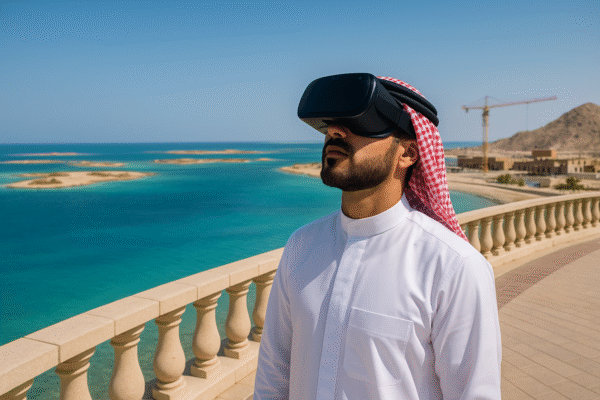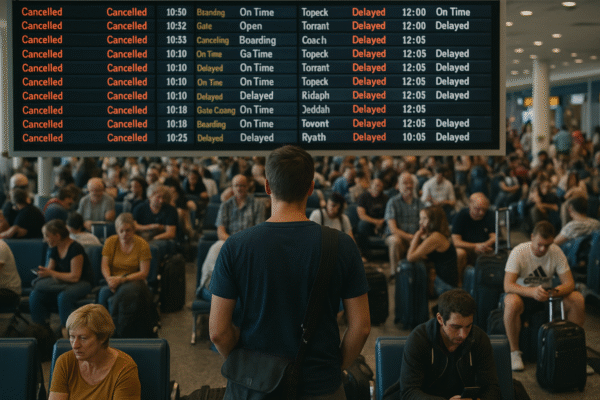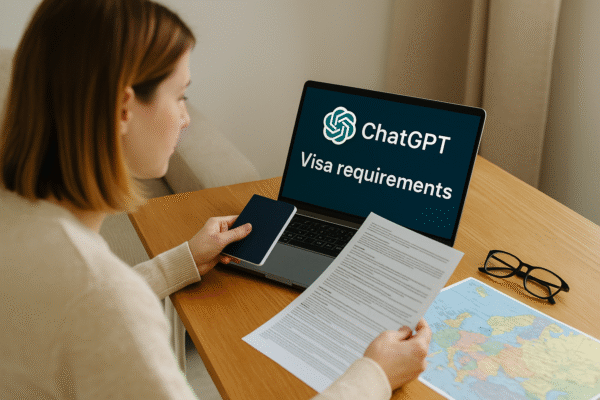Artificial intelligence has become a major part of how modern travelers prepare for their journeys. Tools like ChatGPT are now widely used to check visa rules, find destinations, compare itineraries, and even explore local customs. According to a 2023 Pew Research Center survey, nearly one in four Americans uses ChatGPT to access information, a sharp increase from only 8% at the start of the same year.
While AI provides quick and easy answers, the dangers of relying solely on it for travel planning are growing. The biggest risk is that AI, though confident in tone, may not always offer updated or accurate information. For tourists, that gap can turn a dream vacation into an expensive and stressful experience.
The Hidden Risks of AI-Only Planning
When travelers ask ChatGPT about visas, entry requirements, or travel authorizations, the answers may sound complete—but often lack crucial details. A good example is the Electronic Travel Authorization (ETA) or ESTA requirement. Many travelers assume that a visa-free entry means no paperwork, only to discover at the airport that they must have secured this online authorization beforehand. Missing this step can mean being denied boarding, paying last-minute fees, or even losing an entire trip.
Real-life cases highlight the risk. Social media is filled with stories of tourists missing buses, trains, or flights because of incomplete or outdated advice from AI. What AI overlooks, like newly updated embassy rules or sudden government advisories, can derail entire travel plans.
Beyond Tourism: Broader Risks of AI Advice
This issue is not limited to tourism. In health and wellness, following AI-generated diet or medical tips without consulting professionals has caused real harm. AI systems are designed to provide detailed, persuasive answers, but confidence is not the same as accuracy. This overconfidence becomes even more dangerous in international travel, where policies can change overnight.
Why Travel Rules Change Frequently
One of the reasons AI struggles is the speed at which travel regulations evolve. Governments regularly adjust visa policies, update health entry requirements, and introduce new electronic authorization systems. For example:
- Countries may add health declaration forms during flu seasons.
- Regions affected by natural disasters may impose temporary entry restrictions.
- Security concerns can lead to sudden passport validity extensions or reductions.
AI tools like ChatGPT are not always trained on the most recent updates. By the time a traveler receives advice, the actual rules may already have changed.
Reliable Sources for Safe Travel Planning
The best way to avoid these pitfalls is by combining AI convenience with official verification. Travelers should always confirm details through:
- Embassy and consulate websites – the most direct source for visa and entry rules.
- Government travel advisories – official updates on safety, health, and local laws.
- Airline websites – carriers often list updated travel requirements at check-in points.
- Tourism boards – country-specific tourism offices often provide guidance tailored for visitors.
For instance, the U.S. Department of State (travel.state.gov) and UK Foreign, Commonwealth & Development Office regularly update entry advisories, health risks, and security alerts. Many countries also have dedicated “Travel Authorizations” portals for quick checks.
How to Use AI Safely in Travel Planning
AI tools like ChatGPT are not useless in travel—it’s about how you use them. Here are practical ways to get the best of both worlds:
- Initial Research: Use AI to gather ideas for destinations, itineraries, and cultural highlights.
- Cross-Verification: Always double-check visa rules, entry requirements, and local laws with official government or embassy websites.
- Emergency Planning: Ask AI about typical emergency contacts, but verify numbers like local police, hospitals, or embassies on government pages.
- Budgeting Help: AI can suggest cost estimates, but exchange rates and local taxes should be confirmed with updated sources.
- Itinerary Flexibility: AI-generated itineraries can be a starting point, but travelers should keep room for last-minute changes based on official notices.
Real-Life Example: A Missed Trip to Canada
Consider a traveler from Europe planning a trip to Canada. ChatGPT might explain that no traditional visa is required. Confidently, the traveler books flights and hotels. However, at the airport, they are denied boarding because they missed applying for Canada’s mandatory Electronic Travel Authorization (eTA). The result: lost airfare, wasted hotel bookings, and a ruined holiday—all because official government guidance was not checked.
Conclusion: AI as an Assistant, Not a Final Authority
Travelers should see AI as a helpful assistant, not a final authority. It can speed up research, provide inspiration, and outline general requirements. But when it comes to legal entry rules, visas, or health regulations, only government portals, embassy pages, and airline advisories provide trustworthy updates.
In the fast-paced world of international tourism, where rules shift quickly, official verification is the key to a stress-free journey. Using ChatGPT alone may sound convenient, but pairing it with official sources is the true recipe for safe, smooth, and memorable travel.
For more travel news like this, keep reading Global Travel Wire















